DORA DALILA CHEFFI – THE SUNNY NIHILIST
------------------
- By Ashraf Jamal
Dora Dalila Cheffi, a Finnish-Tunisian artist, belongs nowhere. We meet at the artist's studio at the Cape Town Art Residency to discuss her self-portraits. A tall mirror is a striking studio tool. There, reversed, the artist sees herself. Or, rather, after Heraclitus, she understands that ‘Just as the river where I step / is not the same, and is, / so I am as I am not.’ ‘Why bother painting a “realistic” portrait when you can take a photograph?’ Cheffi’s remark is not idle – paintings deceive, but so do photographs. What we deem personhood, or The Self, is a necessity and an illusion – I am as I am not.
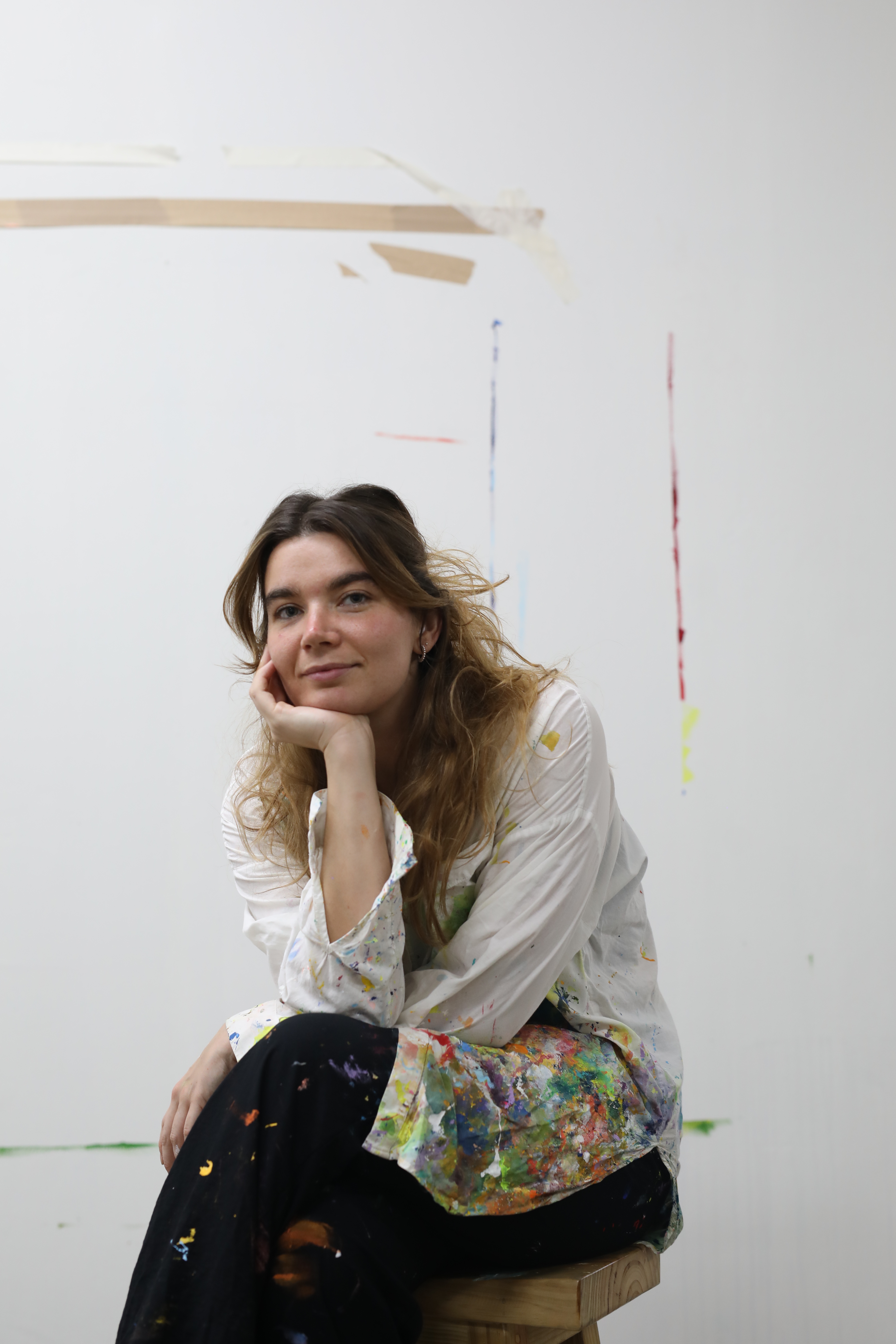
Dora Dalila Cheffi, portrait, photo credit: Yulia Zhilina
‘We know nothing honestly’. Cheffi’s remark is startling, it is not knowledge she disputes, but its integrity. The follow-up is equally startling – ‘I don’t know how to paint’. Yet, there they are, on the walls and floors of her studio, large canvases in which the artist, primarily, is the protagonist, whether singularly, or in twos and threes. The acrylic palette is acidic, a clashing crowding of marks in noisy pinks, loud blues, lilac, strychnine yellows. Neither comforting, nor discomforting, the paintings announce the garish hues that now grace the fashion runways around the world. Brad Pitt in howling yellows is a case in point. It seems that shrieking colour is the antidote to despair – after Wendy Syfret, ‘sunny nihilism’, in which ‘a meaningless life can make you truly happy’. My point? That art need not be crowded out by significance, that selfhood can be performed, altered indiscriminately, because, as Ralph Waldo Emerson, echoing Heraclitus, reminds us – consistency is the hobgoblin of small minds.
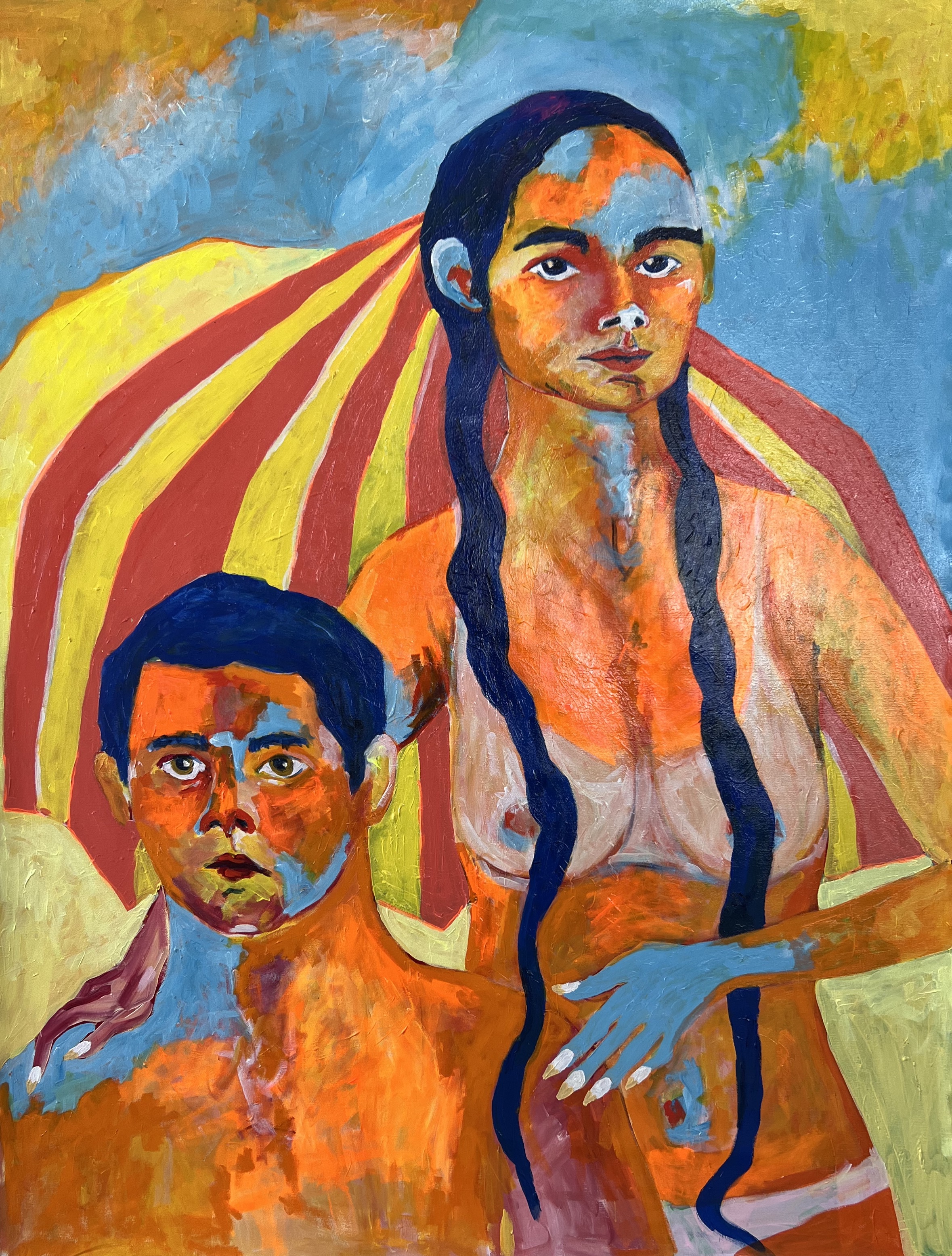
Dora Dalila Cheffi, Untitled, photo credit: Yulia Zhilina
‘My work is an escape from things, and facing it at the same time’. This is no paradox. What Cheffi is addressing is the snarl that informs and defines the creative act – it is both an elision and a confrontation, a parry and a thrust – a feint. Not knowing how to paint, what to see, how to compute – in the act of making – is what allows the artist the vital freedom she requires. This is especially taken in her choice of colours, all importantly, their cacophonic juxtaposition. Inelegance is key, as is a corralled discordance. For what Cheffi most strikingly does is gather discrepant energy fields, harness noise. Given the din we are all trapped within, a din which amounts to global hysteria, it is both commendable and rewarding to meet an artist who seeks to reign in chaos, calibrate a howling world.
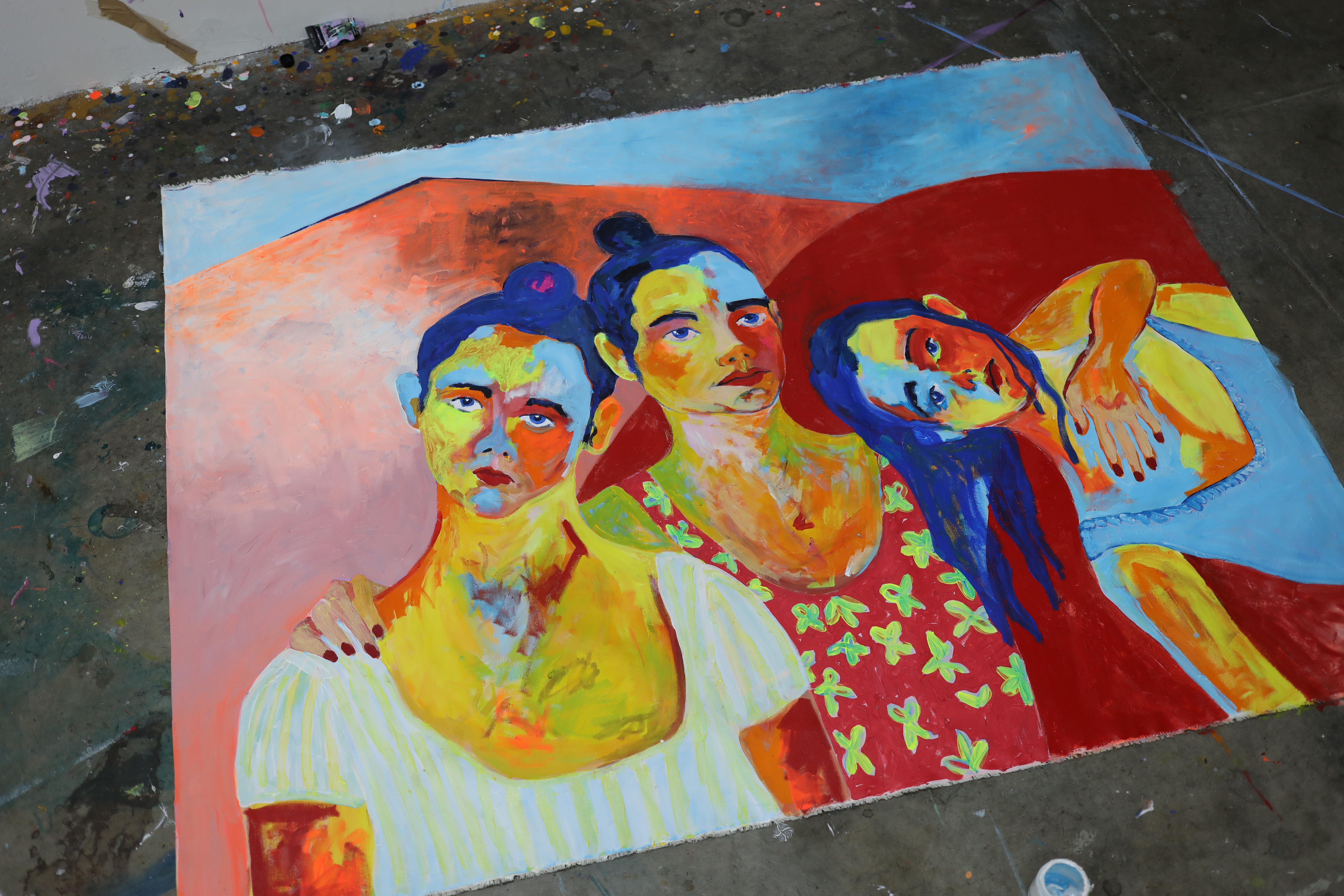 Dora Dalila Cheffi, Untitled, photo credit: Yulia Zhilina
Dora Dalila Cheffi, Untitled, photo credit: Yulia Zhilina
It is no accident that Cheffi has placed herself – her mirrored objective correlatives – at the centre of her painting. This, after all, is the era of the Selfie, a metastasized narcissism, as comic as it is pathetic, as poignant as it is tragic. The artist’s point is not to illuminate this horror story – in which the Self, an Enlightenment ideal, now finds itself hollowed out, empty – but to hold fast to the wonder of self-invention and self-realisation, embodied, in my view, in the gnomic words of Heraclitus. She knows how ‘to make things bright’, says Cheffi. In fact, given she works in a fast-drying acrylic paint which is leeched of light, the brightness she achieves is remarkable. The key lies in the calibration of colours, which, in their howling juxtaposition, performs the dissonance that makes up the Self.
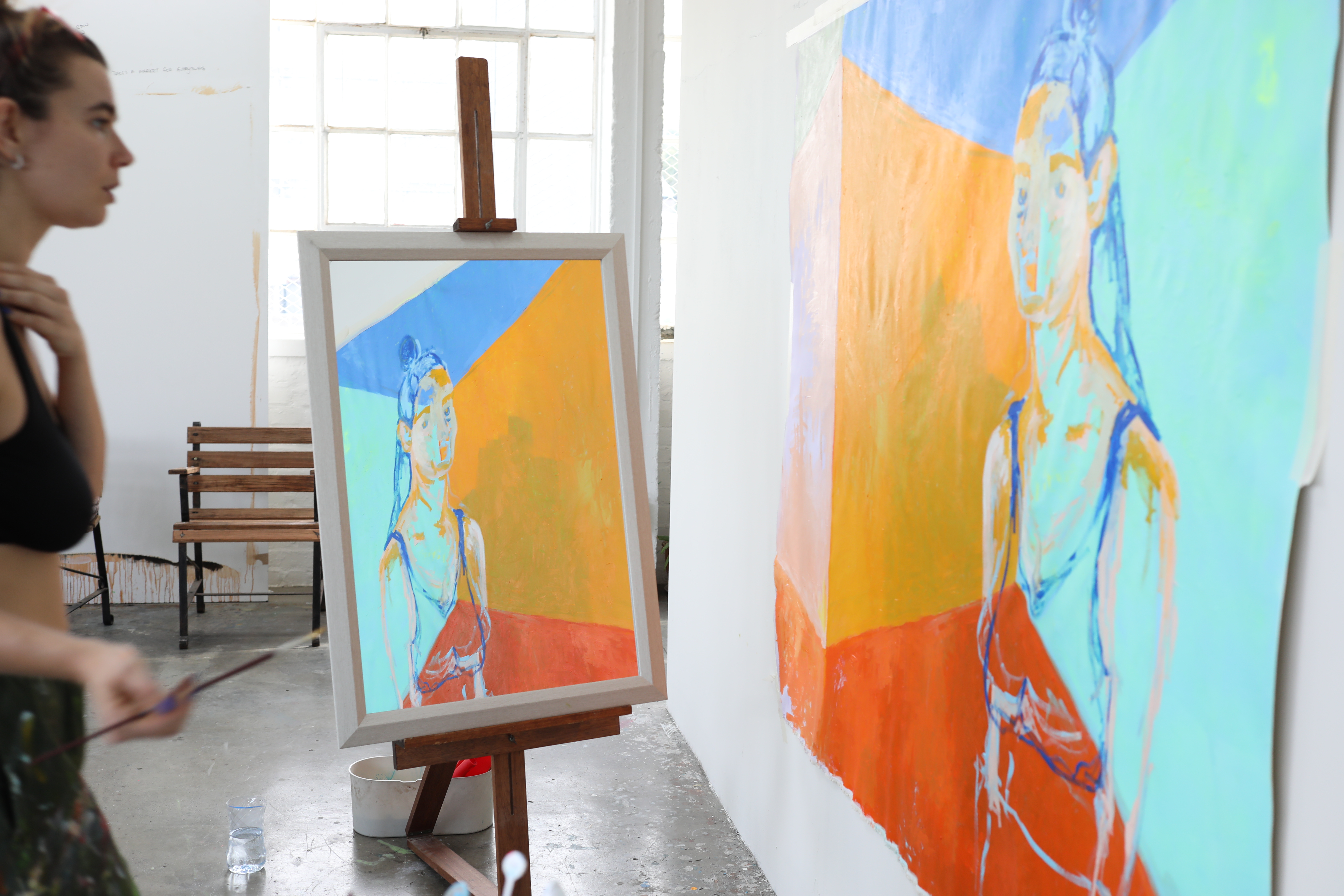 Dora Dalila Cheffi, in her studio at the Cape Town Art Residency, photo credit: Yulia Zhilina
Dora Dalila Cheffi, in her studio at the Cape Town Art Residency, photo credit: Yulia Zhilina
Autobiography, when split into its component parts, amounts to autos (self), bios (biology/body), graph (writing). Immediately we can see that selfhood is a composite, and, as such, that it is inessential – an aggregate. It is this aggressively aggregative energy that informs Cheffi’s paintings. Disarmingly direct, Cheffi tells me that she ‘doesn’t know what needs to be done for a painting to be ready’. This is unsurprising – all endings are interruptions. In the case of Cheffi’s paintings, all the more tempestuously so. In ‘finding the balance, you don’t want to make it too nice. I’d rather make it unpleasant’. ‘Nice’, of course, is a toxic euphemism, but it does incline one to imagine a vision and moment that is entire, sweet, comforting, conditions which the artist abhors. It is unsurprising, in this regard, that Cheffi, in her Cape Town studio, should be paging through a catalogue of paintings by south African artist, Georgina Gratrix, who is as noisome, as discomforting, and yet, movingly joyous. In this regard, Syfret’s coinage – a Sunny Nihilism – returns.
In the face of her constructed selves, Cheffi confides that she is ‘in a complex dialogue’. ‘Who are these people?’ she asks of the portraits of herself. ‘I am trying to understand mood and personality – colour helps’. This connection of Paint and Being is profound. The inheritor of Gaugin, and later, German Expressionism, Cheffi’s palette is an index of modernist noise, the celebration of painterly surface, and its connection to a wholly irreconcilable Being. In her world, it is not mimesis that rules, the painted figure as a facsimile of the self, but, after Expressionism, the painting as a manifestation of an inchoate and incomplete being. If Cheffi’s paintings reward the viewer, this reward is confined to the structural dissonance that binds them, the unabashed howl of colour, the radical doubt built into their making.
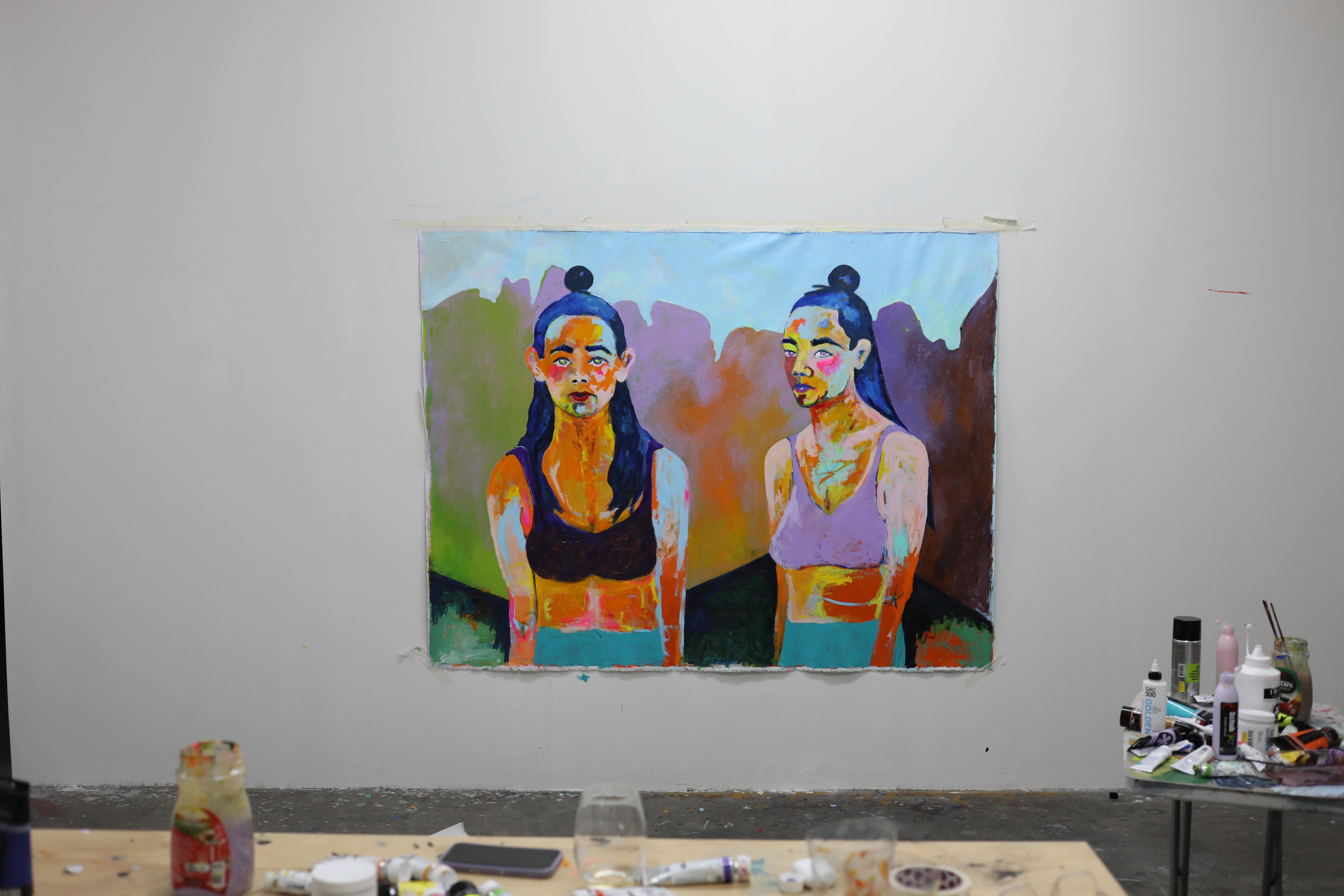 Dora Dalila Cheffi, Untitled, photo credit: Yulia Zhilina
Dora Dalila Cheffi, Untitled, photo credit: Yulia Zhilina
‘I’m trying to create a mix of personality, colours, composition, which challenges the eye’, and, by extension, the psyche. Cheffi further speaks of ‘finding the beauty in the complexity’. ‘Mix’ is the operative word – a combine of clashing elements, a re-mix. As for the beauty inside the complexity? It is never beatific, or easily consoling. Rather, Cheffi takes us to her personal brink – the edge of the Self – and there, teetering in the moment of making, does something uncannily brave – she snubs all quietude, all composure, all easy gains, in favour of some visionary inelegance, some core unpleasantness, which rises to the surface gaudily and vivaciously.
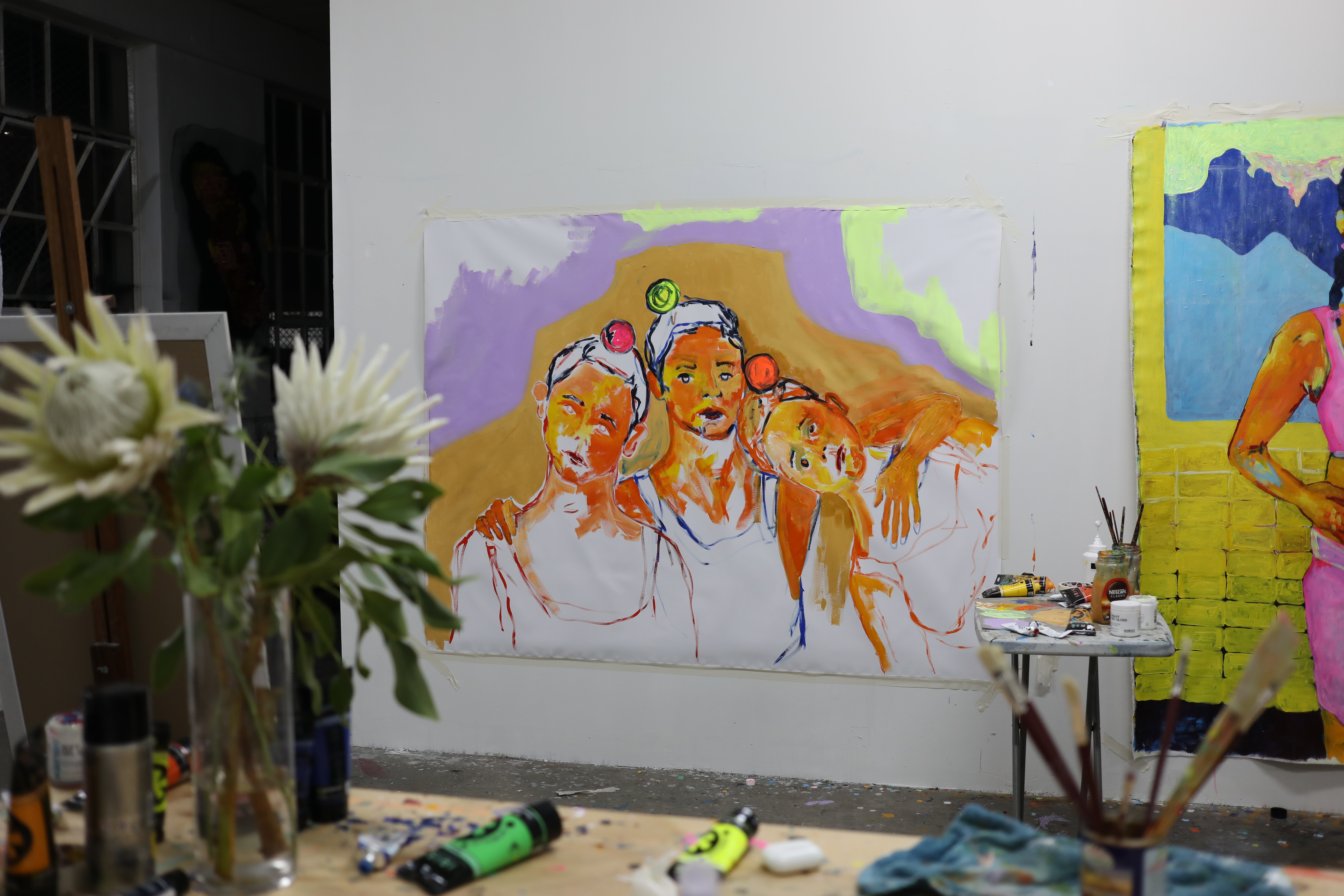 Dora Dalila Cheffi, Untitled, photo credit: Yulia Zhilina
Dora Dalila Cheffi, Untitled, photo credit: Yulia Zhilina

Dora Dalila Cheffi, in her studio at the Cape Town Art Residency, photo credit: Yulia Zhilina
Further Reading In Articles
African Artist Directory




















